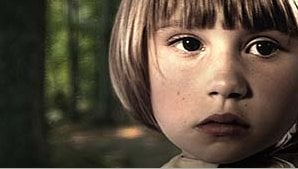This article is more than 1 year old
BBC abandons science
And falls into singularity-shaped hole
But the BBC's charter requires "balance" - so again, thinking rather like cult members, the program brought in a sock puppet: someone who fundamentally supported their shaky proposition, only instead of thinking it was A Good Thing, said it was A Bad Thing. Bill Joy must have been unavailable, so the BBC cast Hugo De Garis in the Bill Joy role.
Like Joy, De Garis also envisaged "fabulous machines" with capacities "trillions above the human level" that were "massively intelligent" and "God-like". (A very hard prospect to imagine when you're re-installing Windows XP).
"How will they treat us?" he asked. "Like this!" - he slapped his forearm to illustrate it - "like mosquitos!"
De Garis is a neural network designer with an eye for cheesy publicity - he's written a book that predicts "Gigadeaths" from the resulting conflicts between humans and "artilects" - machines which have presumably figured out more efficient re-install software sequences than we know today - all by themselves!
"A book that cannot and should not be ignored. It is too important and too disturbing to be. summarily dismissed" (sic) said his chum Captain Cyborg. That's the kind of endorsement most people could do without.
(De Garis regularly spars with Captain Cyborg over which one is a "Cosmist" and which one is a "Terran" - names De Garis made up. We told you the cult-like clues were never far away - and, no, we don't know whether Terrans or Cosmists have the lower Thetan count).
But he had a part to play, and that was to look increasingly nervous and twitchy as the program wore on - and he was close to being a gibbering wreck by the end. As were many of the viewers by this point.
Warming to the apocalyptic theme offered by De Garis, the narrator told us,
"The moment we store our minds in machines, we will be able to change what we are and who we are. So threatening is this future scenario one man has killed to prevent it happening..."
Yes, it was time for the Unabomber. When a homicidal paranoid schizophrenic is enlisted for "balance", you know the program makers are really in deep, deep trouble.
(It's a minor point, but nowhere in the Unabomber's petty, 34,000 word ramble - Industrial Society and its Future did he ever mention "the singularity", or even allude to a fusion of biology and technology and its consequences for the mind. Theodore Kaczynski did, however, ask what North Korea might one day do with genetic engineering - a question that deserves to be discussed more broadly than by a few nutters).
And where the researchers found useful material, it felt shockingly out of place. A 16-year old boy paralyzed from the neck down, and who could only move his eyes, was using a primitive man-machine interface to communicate with his carers. Here, our limited understanding of the brain was being put to practical use - not to "live forever" but to make one life a little more tolerable - an example trivialized by the context of "Human v2.0".

For anyone watching in real-time, the news program that followed was illuminating. Newsnight focussed on the crisis in ... science. The number of applicants to higher education courses in physics had dropped to a third, something apparently common in what get called "developed economies". A learned panel was asked, "how could this be?"
But we'd already figured out the answer to that one. Perhaps because scientists were portrayed as ludicrous, misanthropic self-publicists, and science itself merely a sequence of unsupportable claims.
Well done, Beeb. ®
